The beginning
In the summer of 2023, after a brief discussion with industry leaders Shazia Ginai and Babita Earle, I joined the Colour of Research (CORe) steering committee and the MRS Equality, Diversity and Inclusion Council, embarking on an amazing journey of personal growth, learning, and expanding connections. Together, we collaborate with various MRS Purpose Groups to drive positive change throughout our industry, aiming to create a sector that genuinely represents the world we seek to understand. In June 2024, CORe hosted our first in-person event, which was a tremendous success for both us and our audience, receiving robust support from the industry. The event was hosted at our offices here at Yonder Data Solutions and sponsored by Savanta, IPSOS, The Mix, and Hasson Associates. We extend our heartfelt thanks to all of them, as their support was vital to the event’s success.
What is Colour of Research?
Colour of Research actively promotes the inclusion of ethnic professionals in the market research industry. Our goal is to provide support and motivation while creating meaningful connections to foster growth and development.
The objective of the event was for a deeper understanding of our purpose, showcase examples of our impact, highlight genuine allyship, and suggested actions we can all take to make this industry inclusive for everyone. We are proud of our progress and grateful for your support in this journey towards change.
How important is representation in research? What are the benefits?
A primary focus of ours is on the crucial role of representation in research (external practice). For those unaware, the MRS has a Representation in Research Steering Group which I strongly encourage you to follow and collaborate with to refine research approaches and enhance the depth of insights.
We believe that a nationally representative sample must have a strong enough similarity to the population of the country being studied in order that results will be valid. This means ensuring that the sample represents the country’s population in key demographic characteristics. For instance, at Yonder Data Solutions, our established national representative sample for the UK has included representative quotas on gender, age, region, social grade and ethnicity for several years.
The value of diversity in market research cannot be overstated, it fosters innovation, enhances market intelligence, and appeals to a consumer base that values inclusivity. As a Commercial Director, I champion inclusive research practices, recognising their role not only in securing competitive advantages but also in contributing to a more equitable and diverse marketplace. By prioritising diverse perspectives in our research strategies, we not only strengthen our competitive edge but also support the development of a more inclusive industry.
Representation in research mitigates the risks of cultural biases that can lead to market failures. By understanding diverse perspectives, companies can foresee potential problems before they occur, adjust strategies timely, and avoid costly mistakes.
Diverse groups bring different viewpoints to the table, leading to innovative and creative solutions. When market research is inclusive, it captures these varied perspectives, often leading to breakthrough ideas and pioneering products that keep companies ahead of their competition.
Choosing the right research methodology is crucial. While online research is quicker and more cost-efficient, it often overlooks significant segments of the population like those with limited digital access or narrow internet usage. Other hard-to-reach groups via online methods include individuals with mental health issues, disabilities and residents of rural areas. A single methodology might be sufficient for specific target audiences, but a mixed methodology approach is essential for achieving a truly nationally representative sample where it is applicable to the brief at hand. It is our responsibility to advocate for and implement these comprehensive strategies with brands and agencies. The initiative must begin with us.
How important are diverse teams to a business?
We focus on internal strategies as well, encompassing HR, recruitment, affinity groups, DE&I internal committees, and general DE&I committees in association with the Market Research Society. We acknowledge the underrepresentation of ethnic minorities in the research industry, particularly within senior leadership. There exists a prevailing sense of uncertainty on how to effectively address this issue, a shortage of diverse new talent entering the field, and insufficient awareness among potential allies regarding these challenges. Diversity encompasses a wide range of identity factors, including gender, race, ethnicity, age, sexual orientation, religion, and educational background.
DEI not only benefits the internal dynamics of a company but also enhances its external interactions and societal contributions. It is vital for sustainable growth and social development.
A positive initial action is to support the MRS Inclusion Pledge where CEOs commit towards creating safer and more representative workplaces. The pledge includes: publishing pay statistics annually, working towards government targets for women and ethnic minorities at board level and improving recruitment practices.
Call to action
If you are interested in having CORe speak at your business, please feel free to get in touch. I would also recommend exploring the MRS Purpose groups, which include MRS Pride, MRS Unlimited, MRS Social Inclusion Group, and Women in Research.




